Bali's idyllic weather and lush landscapes create a paradise for
Instagram-worthy photos and a thriving habitat for diverse wildlife, including
animals, insects, and reptiles. However, it's important to remember that not
all of Bali's creatures are as welcoming as its people. Here's what you need to
be cautious of on this paradise island.
Animals
Monkeys
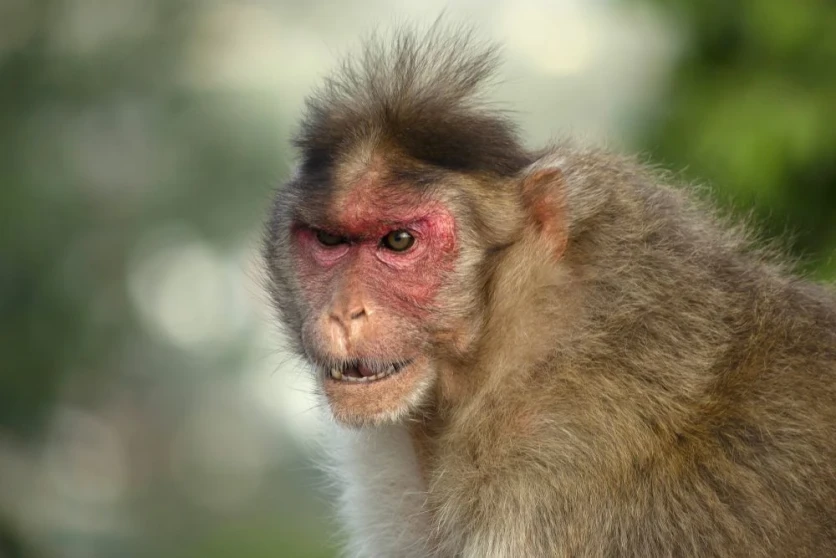
In cartoons and Disney movies, monkeys are often depicted as cute and
harmless creatures, playfully frolicking around. However, the reality in Bali
is quite different. Monkeys here are clever, mischievous, and sometimes
aggressive, especially when they are in groups.
These monkeys are known for their boldness, snatching anything that catches
their eye—food, water bottles, glasses, phones, earrings, you name it. In
places like the Monkey Forest in Ubud, there are even rumors that some monkeys
collaborate with locals, stealing items and returning them for a reward.
If you plan to visit areas inhabited by monkeys, exercise caution. Keep
shiny or valuable items out of sight, as these can easily attract unwanted
attention. Remember, monkeys have sharp teeth and can carry diseases, including
rabies, which is deadly without proper vaccination. If you're bitten by a
monkey—or any animal—seek medical attention immediately, even if the wound
appears minor.
Balinese Dogs

Balinese dogs, often called "balidogs," aren't always the friendly
companions you might expect. These dogs can carry a variety of diseases,
including scabies, demodicosis, fungal and bacterial infections, fleas, and
lice. While it's uncommon to contract these illnesses, it's wise to wash your
hands thoroughly after touching a dog.
Balidogs also pose a hazard on the roads. They have a peculiar habit of
lying in the middle of streets, especially at night, making roads like the one
from Canggu to Ubud particularly risky for scooter riders.
Like other dogs, balidogs can be aggressive and may bite. They become even
more dangerous when in packs. For instance, there was an incident where a pack
of balidogs attacked an Australian tourist.
Additionally, despite efforts by Bali authorities to vaccinate stray dogs,
rabies remains a concern with balidogs. If you're bitten by a balidog, even if
the wound seems minor, it’s essential to see a doctor promptly, as you may need
to undergo a series of rabies shots.
Cats
Though cats may seem like ideal cuddle companions, they can transmit various
diseases, including ringworm (dermatophytosis), feline scabies, fleas, lice,
and even toxoplasmosis—a parasite humorously said to make people love cats
unconditionally. Cats can also carry and spread rabies. To protect yourself,
always practice good hygiene after touching any animal, especially strays.
Reptiles
Snakes
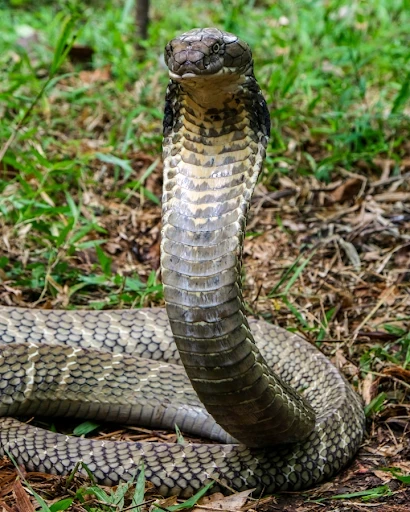
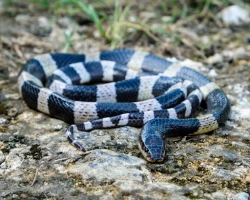
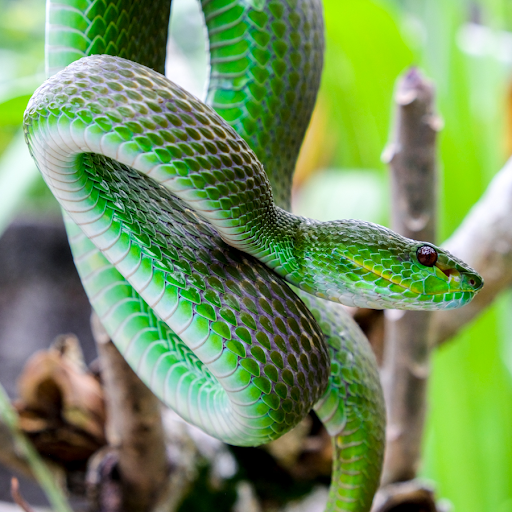
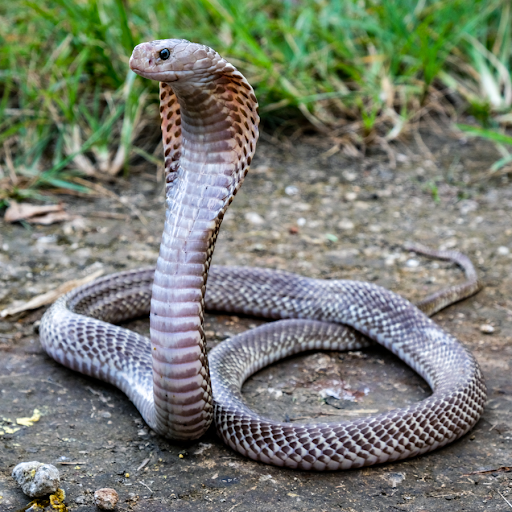
Photo: heworldtravelguy.com
Bali is home to about 46 snake species. While their hissing and slithering
might seem intimidating, only six are truly dangerous, including the king
cobra, kraits, pit vipers, and vipers. Most other snakes, though potentially
venomous, are not usually fatal. Generally, snakes are more afraid of humans
and will only attack if provoked. If you encounter a snake in your home, call a
professional service to handle it—don't attempt to deal with it yourself, as
snakes are quick and dangerous. Having a cat may help keep them away.
To minimize the risk of snake bites in the forest, wear appropriate
footwear, use sneakers, and carry a flashlight at night, as snakes avoid light.
Remember that snakes are excellent at camouflaging, so you might not see them
until they are very close. If bitten, avoid trying to suck out the venom.
Instead, keep the affected limb still, seek medical attention immediately,
drink plenty of fluids, and, if possible, photograph the snake for
identification. This will assist doctors in choosing the correct antivenom.
Even if the bite isn’t venomous, it could still lead to an infection, so
seeking medical help is always recommended.
Insects
Bees, Wasps, and Hornets
When it comes to bees, wasps, and hornets, the best approach is simple:
avoid disturbing them or their nests, and they are likely to leave you alone.
Bali is home to many wild and semi-wild bee species. Occasionally, swarms
may come close to people's properties, but they typically do not sting unless
provoked. If you are stung, follow these steps: check if the stinger is left in
the skin and remove it, clean the area with an antiseptic solution, apply a
cold compress, and drink plenty of fluids. Taking an antihistamine is also
advisable, as allergic reactions can occur.
If you experience any signs of an allergic reaction, especially if symptoms
worsen, seek medical attention immediately. This is particularly important if
the sting is near the eye, mouth, or throat, as even slight swelling in these
areas can be dangerous. Remember that allergic reactions to stings occur in
about 2% of people.
Mosquitoes
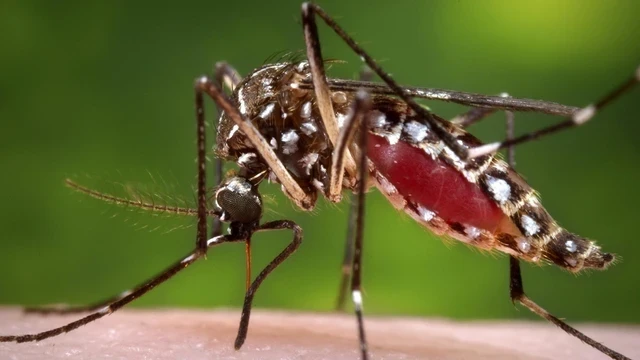
Mosquitoes are active year-round in Bali, but their numbers can increase significantly during the rainy season, which typically runs from October to March. The rainy season creates ideal conditions for mosquito breeding due to high humidity and the prevalence of standing water in puddles, water containers, and clogged drains. This environment supports the rapid development of mosquito larvae. In contrast, the dry season from April to September generally sees a decrease in mosquito activity, but mosquitoes can still be a concern, especially if there are sources of standing water around.
Mosquitoes are a common nuisance in Bali and can pose serious health risks, such as transmitting dengue fever. Dengue fever is
a serious illness that often requires hospitalization and is common in Bali.
For example, early in 2023, Bali reported 2,500 cases of dengue fever. If you
experience symptoms such as fever, swollen lymph nodes, a bright red rash, or
joint and muscle pain, seek medical attention immediately.
The mosquitoes that transmit dengue fever—primarily Aedes aegypti and Aedes albopictus—are day-active. This means they are most aggressive during daylight hours, particularly early in the morning and late in the afternoon, though they can bite throughout the day.
To protect yourself from mosquito bites and reduce the risk of dengue fever, wear protective clothing, eliminate standing water, and use mosquito nets and screens.
Ants
If ants invade your home, act
quickly to prevent damage and discomfort. Use a local insecticide like Baygon
to eliminate them before they can damage your furniture or steal your food.
Ants are incredibly strong—they can carry away parts of your meal and may even
bite if their attempts to steal food fail.
Besides being a nuisance, some ants, like mosquitoes, can spread diseases
such as dengue fever.
To avoid insect bites while
exploring nature in Bali, apply repellents available at local stores like
Indomaret and AlfaMart.
Tomcat
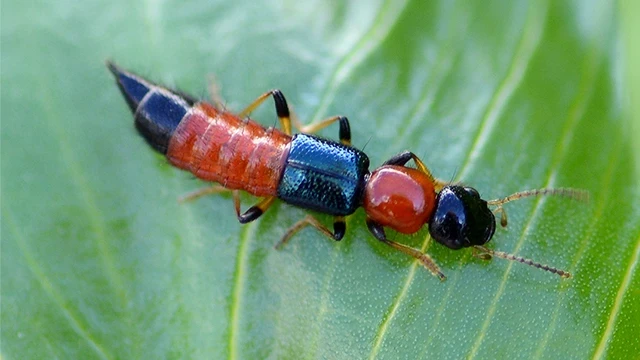
Tomcats are small flying insects commonly found in rice fields but
occasionally enter homes. Exercise caution if you encounter them—crushing or
swatting these insects can result in severe, long-lasting chemical burns. If
you come into contact with a tomcat, wash the affected area immediately with
soap and water. If some time has passed since the burn occurred, visit a
pharmacy, mention "tomcat," and they can provide a special ointment
for burns. Although these insects can be aggressive, managing encounters with
them is usually straightforward.
Centipedes
Some centipedes in Bali can grow up to 20 centimeters long, and their bites
can be extremely painful, though they are not usually fatal. There is no
antivenom for centipede bites, so treatment generally involves pain relievers
and applying lidocaine to the affected area. Most symptoms should subside
within 48 hours, but it’s still a good idea to consult a doctor to ensure
proper care.
Cockroaches
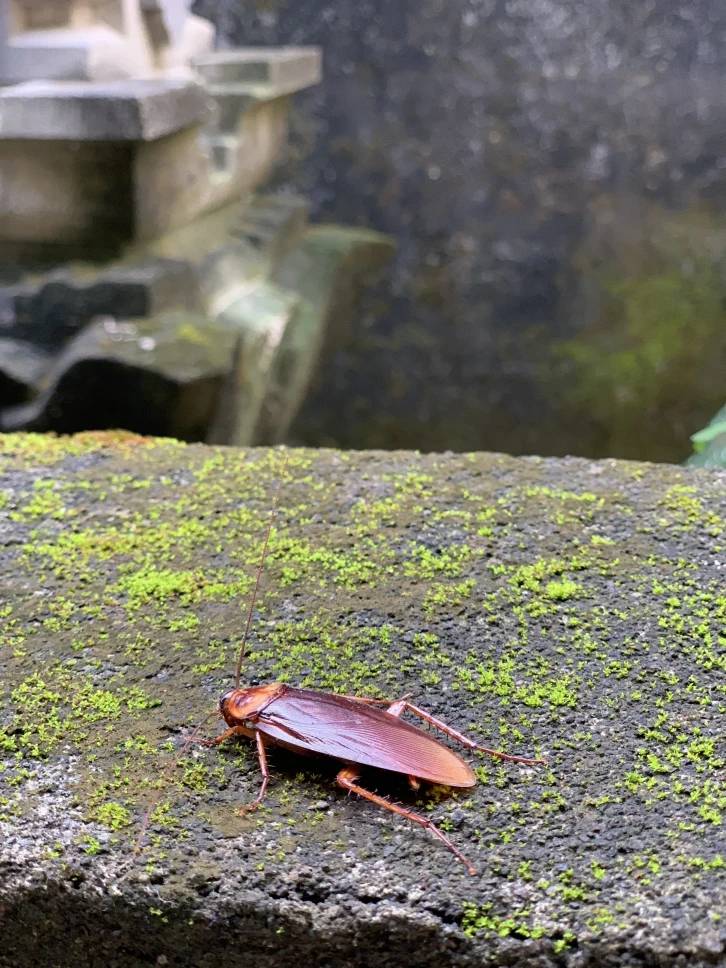
Bali is home to cockroaches—large, flying insects about the size
of a matchbox. While their size might be unsettling, these creatures pose no
real harm to humans. If your home becomes infested, it's best to contact a
local pest control service, many of which also handle ants and flies.
Arachnids
Scorpions
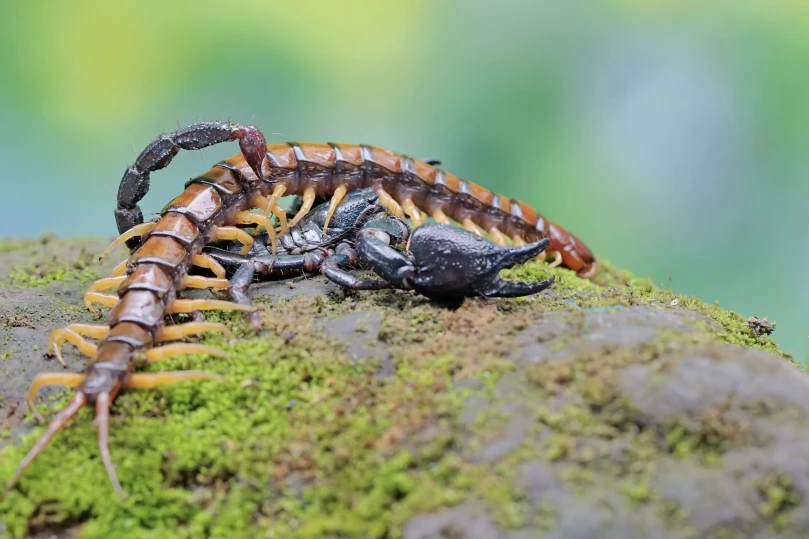
Bali is home to three species of scorpions, none of which are deadly unless you have an allergy to their stings. If you are allergic, you'll know quickly, as reactions can be severe.
If stung, try to take a photo of the scorpion to assist doctors with treatment. Even if you're not allergic, a scorpion sting can be extremely painful and may cause local paralysis. It's important to seek medical attention in either case. For children or elderly individuals who are stung, seek medical help immediately, as scorpion stings can be particularly dangerous for them.
After a sting, wash the affected area with soap, apply a cold compress, take an antihistamine, elevate the limb to heart level, and use a pain reliever.
Spiders
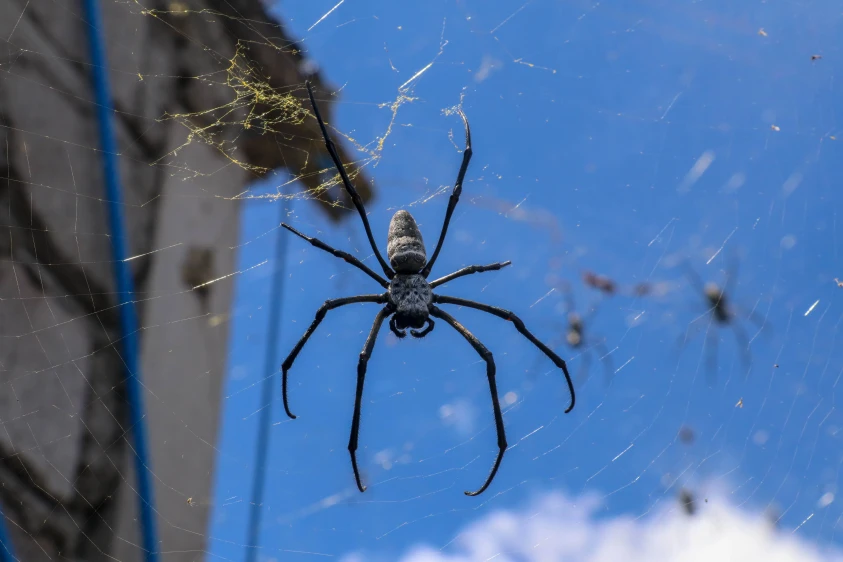
Bali doesn’t have any spiders that are dangerous to humans, but it does host
some impressively large ones, like the Huntsman spider, which can have a leg span of up to 30 centimeters. Although their venom can cause discomfort, it is not harmful to
humans, and they do not see us as prey since we don’t fit in their webs. If
bitten, wash the area with soap and water, apply a cold compress, and take a
pain reliever. If you experience an allergic reaction following a spider bite,
seek medical help promptly.
Underwater: Bali's Fascinating yet Hazardous Creatures
The beauty of fish in Bali’s waters is captivating, but it’s safest to
admire them from a distance. Their appearance can signal potential dangers:
some fish have sharp spines on their fins that contain potent protein-based
toxins. While this poison is not lethal, it can cause significant pain.
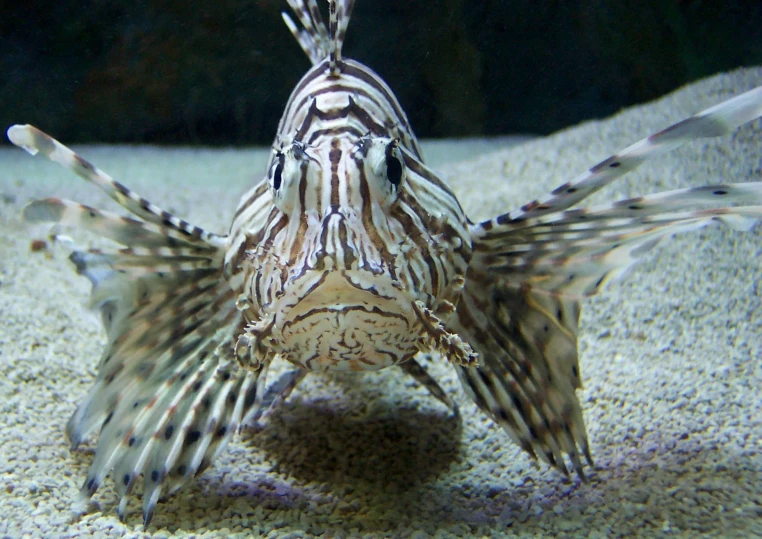
If you get pierced by a fish spine, follow these steps:
- Remove Spines: Carefully remove any spines from the wound using gloves.
- Clean the Wound: Wash the affected area with soap and water.
- Apply Heat: Immerse the wound in very hot water (about 60°C). The heat helps break down the protein toxin.
- Pain Relief: Take pain relievers to manage discomfort.
- Check Tetanus: Ensure your tetanus vaccination is up to date.
If you experience severe pain or other symptoms,
seek medical attention promptly.
Stonefish (Wart Fish)
The stonefish is the most venomous fish in the
world. Unlike the brightly coloured lionfish, the stonefish excels at
camouflage, blending seamlessly with its surroundings. This makes it easy to
accidentally step on, which can be extremely dangerous. Contact with a
stonefish can be fatal. Its venom, like that of other venomous fish, is
protein-based. If stung, immediately clean the wound, immerse it in hot water,
and seek prompt medical attention.
Blue-Ringed Octopus
This small yet deadly octopus is both stunningly beautiful and extremely
dangerous. Measuring just 4-6 cm, it is commonly found in coral reefs around
Bali and may sometimes appear in lagoons during low tide. While its vibrant
colors are captivating, it’s crucial to admire this octopus from a distance and
avoid touching or disturbing it. When threatened, it displays a dazzling array
of colors as a warning. Despite its appearance, its venom is potent enough to
kill 26 adults.
If someone is bitten, perform artificial ventilation until medical help
arrives, as the venom causes paralysis. However, there's no need to be overly
concerned about the sea, as there have been only 18 recorded fatalities
worldwide from this creature. Typically, it will swim away at the first sign of
danger.
Sharks
Bali’s waters are home to a variety of shark species, including blacktip
reef sharks, whitetip reef sharks, gray reef sharks, Balinese cat sharks, angel
sharks, Bull sharks, Grey sharpnose sharks, and occasionally, the great white shark. Generally, sharks do not pose
a threat to humans, as we are not part of their food chain. If you encounter a
shark, remain calm and give it space. Shark diving in Bali is popular and
considered safe, as these creatures do not see humans as prey. Since 1990,
there have been only five recorded shark attacks in Bali, none of which were
fatal.
In the unlikely event of a shark attack, playing dead won’t be effective.
Instead, defend yourself with whatever you have—such as a surfboard, diving
gear, fishing equipment, or even your fists. Instead, defend yourself using anything at hand—like a surfboard, diving gear, or even your fists. Quick, sudden movements may scare the shark, and if you must strike, aim for the eyes, nose, or gills, which are its most sensitive areas. Get to shore or a boat as soon as possible. If
bitten, apply a tight bandage above the wound to control bleeding and seek
immediate medical attention, regardless of the bite’s severity. It’s also
helpful to wrap the injured person in a blanket to prevent heat loss.
When it comes to Bali's wildlife, the best advice is straightforward: always
observe animals, fish, and insects from a safe distance, and avoid touching or
disturbing them, no matter how cute or harmless they may seem. By following
these guidelines, you're likely to enjoy only pleasant memories of your
encounters with Bali’s fascinating wildlife.
You can add one right now!